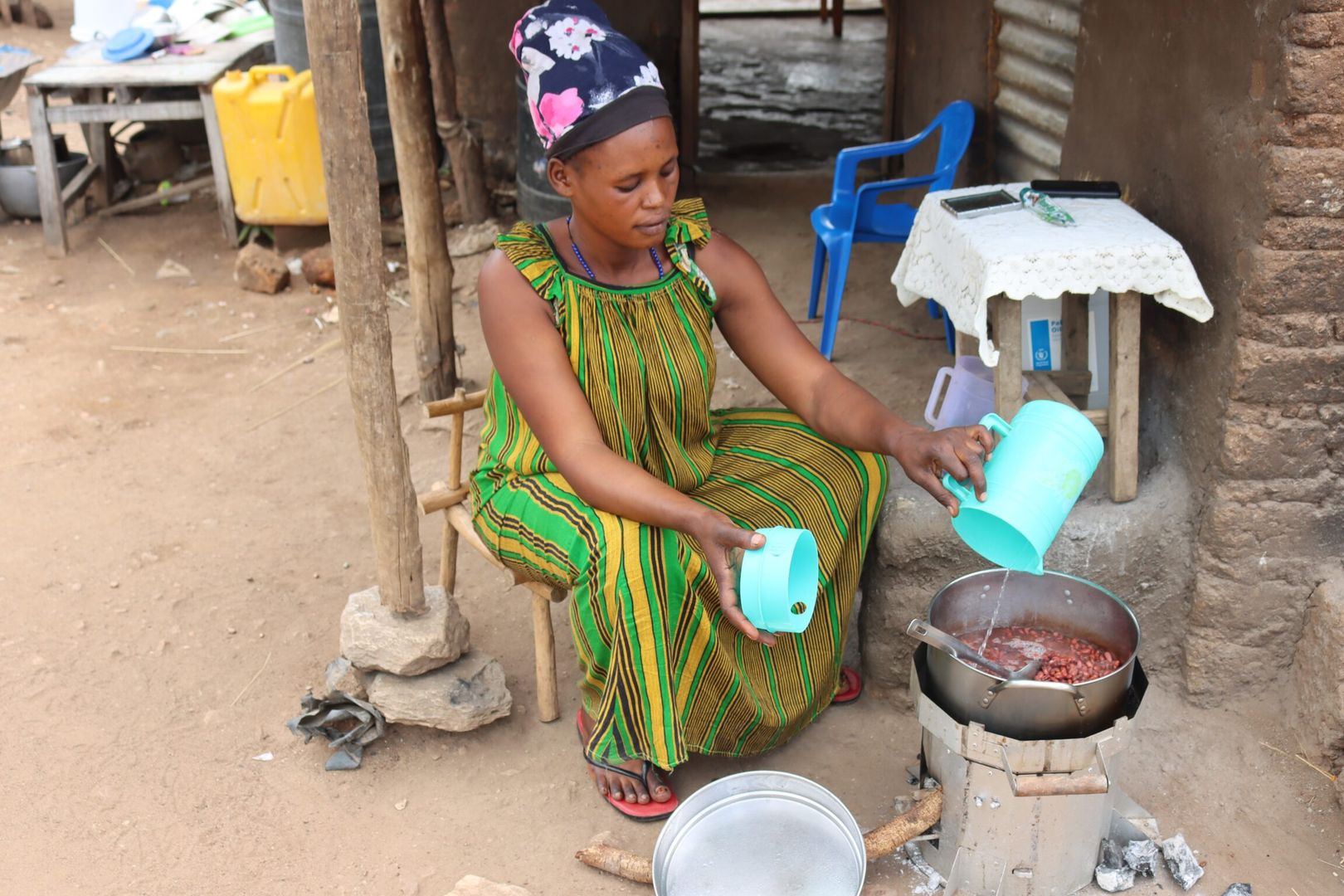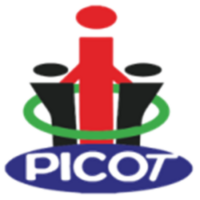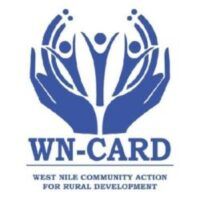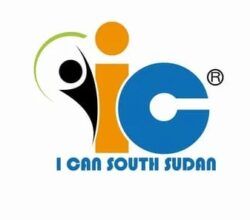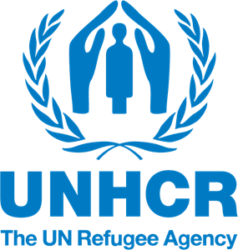The Issue
Refugees and host communities are mostly dependent on natural resources to meet their basic needs for cooking energy, materials for shelter, and agricultural land. Some also generate income by selling biomass and non-wood forest products. However, as the refugee population continues to grow, increased pressure on land and natural resources (water, forests) and accelerating environmental degradation, represent a major challenge, including in refugee-hosting districts where the refugees’ needs, and growing population add to the pressure. In addition to leading to environmental degradation and reduced groundwater recharge and supply, these demands contribute to increased risk of GBV for women and children whilst collecting fuel wood, reduced food and nutrition security, and depleted sources of cooking fuel. Competition over diminishing natural resources can cause tension and disrupt peaceful co-existence between refugee and host communities whilst access to clean and sustainable energy remains a challenge. Increased deforestation and environmental degradation around refugee settlements coupled with delayed rains, changes in rainfall patterns, and scarcity of wood fuel, also present major issues.
The Project
The project aims to restore the environment, which is under extreme pressure due to the influx of refugees and consequent high demand for forest products; promote green livelihood activities for both refugee and host communities through agroforestry, shea nut butter production, and beekeeping techniques; as well as introduction and promotion of alternative clean energy sources, and fuel-efficient technologies. The project also promotes rice establishments, maintains old woodlots, promotes household tree growing, strengthens agroforestry practices, and introduces energy-saving cookstoves and alternative energy sources like briquettes and heat-retaining baskets.
End goal
By 2025 all persons of concern in refugee hosting districts shall benefit from a healthy natural environment, and improved social services, including health, education, water and sanitation, and social welfare, provided through national systems where possible.
The Change
The project protects and restores the environment and natural resources while also promoting safe access to sustainable energy and green livelihoods. Out of all the activities, a key priority is the protection of existing woodlots established in previous years under UNHCR support, as well as the establishment of new ones. Another major focus is to increase the target population’s access to energy-efficient technologies and fuels for cooking through the provision of improved energy savings stoves. The action is geared towards reducing environmental degradation and pressure on natural resources as well as improving upon environmental sustainability, both of which continue to be major challenges in Uganda as a result of growing refugee and host populations.
Through the restoration efforts, the project seeks to restore and improve the vegetation cover, as well as contribute to climate change mitigation. Improved agricultural productivity as a result of soil fertility restoration, and increased access to land by refugees for crop production.
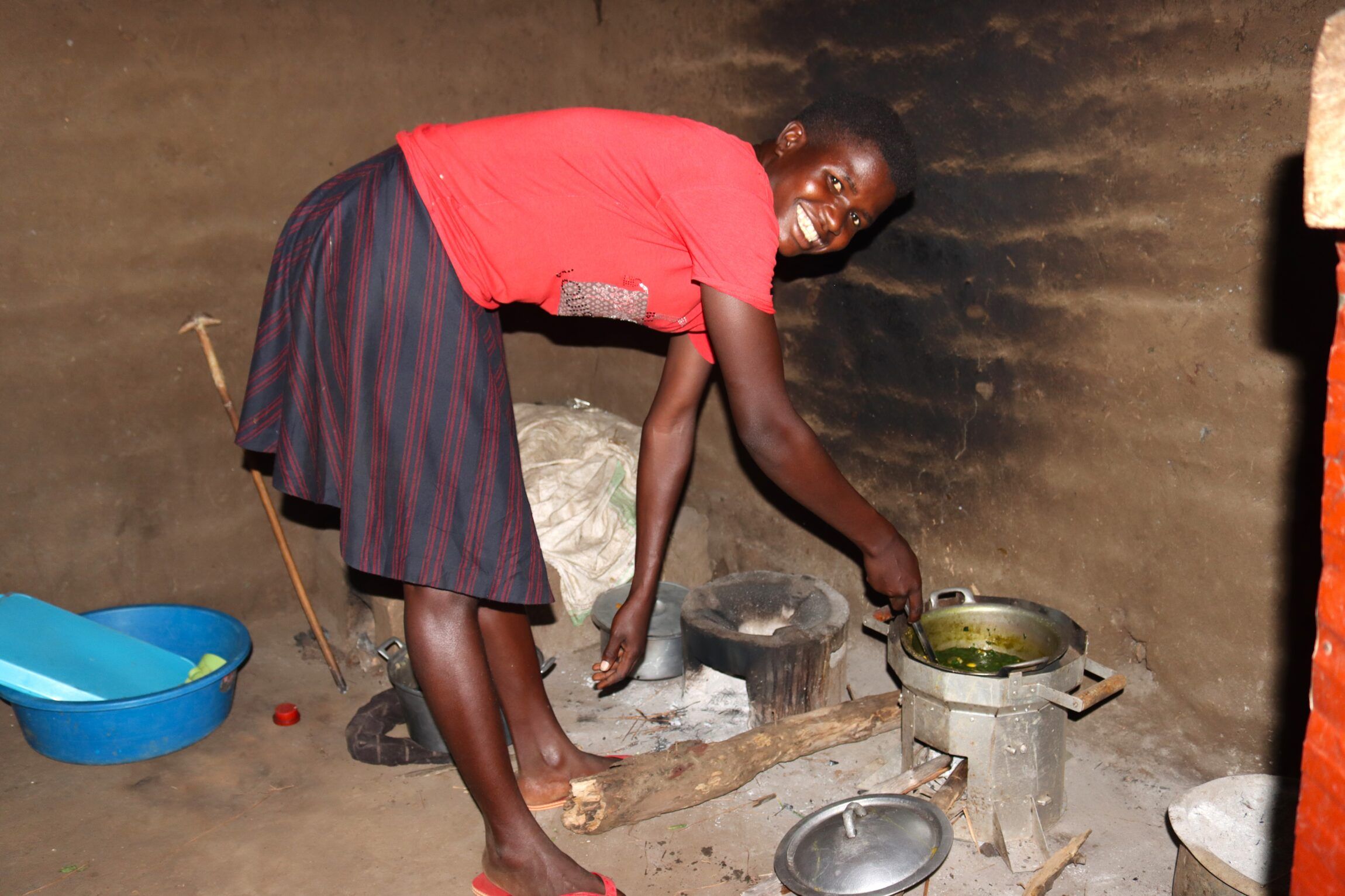
The Results
The action has enabled access to energy-efficient technologies and fuels for cooking (Lorena cookstoves) for 43,623 Persons of Concern in the West Nile region. In the urban programming (Kampala) 150 households were supported with a combined energy package of energy cookstoves, briquette charcoal, and heat retaining baskets. The adoption of cleaner cooking technologies has contributed to efforts to mitigate climate change by reducing the emission of greenhouse gases associated with traditional cooking methods.
Over 4,833,000 tree seedlings have been planted since 2019 in woodlots and households, the woodlots have been maintained and gap-filled through the approaches of Cash for Work and agroforestry. The establishment and maintenance of new and existing woodlots provides various environmental, economic, and social benefits including Timber production, Carbon Sequestration, Biodiversity restoration and support, Soil conservation, provision biomass for cooking, Community engagement, and support among others. The project also promotes rice production amongst 362 farmers and 1 institution. This has contributed to increased food security, improved livelihoods as well as creation of employment (green livelihoods).
Thematic Relevance
DanChurchAid (DCA), through its goals of “Building Resilient Communities“, focuses on building the economic, social, and environmental resilience of marginalized communities by increasing their production, income, and employment opportunities.
About this project
Title: Protection and Restoration of the Environment & Promotion of Safe Access to Sustainable Energy and Green Livelihoods in Refugee and Host Communities in the Districts of Yumbe, Terego, Madi Okollo, Kiryandongo and Kampala.
Period: 1. January 2023 – 31. December 2023
Amount: 550,000 USD
Outreach: 22,500 direct beneficiaries and 90,000 indirect beneficiaries
Donor: United Nations High Commission for Refugees
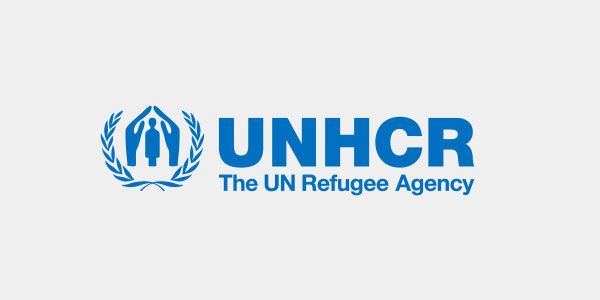
Our Partners
DCA is working with a wide range of partners in the implementation of this project. Read more about them here:

